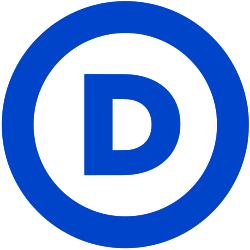Democratic National Committee
 |
|
| Founded | 1848 |
|---|---|
| Headquarters |
430 South Capitol St SE, Washington, D.C. 20003, U.S. |
|
Key people
|
Chair: Donna Brazile (Interim) Officials: Andrew Tobias - Treasurer Stephanie Rawlings-Blake - Secretary |
| Website | democrats |
The Democratic National Committee (DNC) is the formal governing body for the United States Democratic Party. The committee coordinates strategy to support Democratic Party candidates throughout the country for local, state, and national office. It organizes the Democratic National Convention held every four years to nominate and confirm a candidate for president, and to formulate the party platform. While it provides support for party candidates, it does not have direct authority over elected officials.
The DNC is composed of the chairs and vice-chairs of each state Democratic Party committee and over 200 members elected by Democrats in all 50 states and the territories. Its chairperson is elected by the committee. It conducts fundraising to support its activities.
The DNC was established at the 1848 Democratic National Convention. The DNC's main counterpart is the Republican National Committee.
The DNC is responsible for articulating and promoting the Democratic platform and coordinating party organizational activity. When the president is a Democrat, the party generally works closely with the president. In presidential elections it supervises the national convention and, both independently and in coordination with the presidential candidate, raises funds, commissions polls, and coordinates campaign strategy. Following the selection of a party nominee, the public funding laws permit the national party to coordinate certain expenditures with the nominee, but additional funds are spent on general, party-building activities. There are state committees in every state, as well as local committees in most cities, wards, and towns (and, in most states, counties).
The chairperson of the DNC is elected by vote of members of the Democratic National Committee. The DNC is composed of the chairs and vice-chairs of each state Democratic Party's central committee, two hundred members apportioned among the states based on population and generally elected either on the ballot by primary voters or by the state Democratic Party committee, a number of elected officials serving in an ex officio capacity, and a variety of representatives of major Democratic Party constituencies.
The DNC establishes rules for the caucuses and primaries which choose delegates to the Democratic National Convention, but the caucuses and primaries themselves are most often run not by the DNC but instead by each individual state. Primary elections, in particular, are invariably conducted by state governments according to their own laws. Political parties may choose to participate or not participate in a state's primary election, but no political party executives have any jurisdiction over the dates of primary elections, or how they are conducted.
...
Wikipedia
